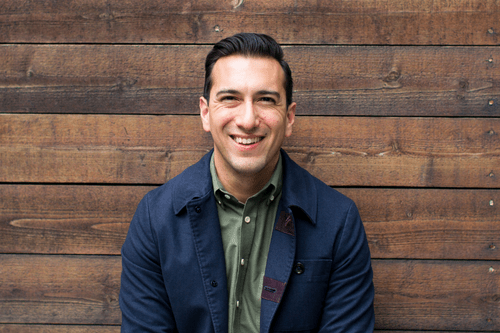In anticipation of The Montessori Event 2023, I had an opportunity to speak with Jamil Zaki, author of The War for Kindness: Building Empathy in a Fractured World and Thursday’s keynote speaker. Throughout the conversation, Jamil offered knowledge and thought-provoking ideas related to empathy, kindness, and connection. Anticipating an equally valuable address at the conference, Jamil’s message to me was powerful and will undoubtedly offer everyone great reward.
I prepared several questions based upon my read of Jamil’s 2019 book. Much of what he discussed resonated with me as I once studied the perceived understanding that children aged 9 – 12 have about empathy and their prevalence for expressing it. Part of my goal in speaking with Jamil was to confirm a common understanding that suggests that children are greatly influenced by adults and others from whom they model behavior. Generally speaking, I wondered what Jamil could offer us as Montessori educators so that we could best support our students’ development of personal attributes that promote perspective-taking, inclusion, and care.
Perspective
Jamil and I first talked about the benefits and differences that exist between perspective-taking and perspective-giving. While thinking about the old adage of “walking a mile in someone else’s shoes,” Jamil cautioned me in assuming that this was a sufficient enough activity to warrant an accurate understanding of someone else’s experience. In fact, he shared research whereby conclusions were drawn that showed that in instances where a particular group attempted to perspective-take by thinking about others’ experiences, they were no better at understanding another’s perspective than those who didn’t try at all.
We also talked about the value of sharing experiences, also known as perspective-giving. While we can all likely agree that each of us has a pretty firm understanding of the majority’s perspective in our society (dare I say those we most often hear from—affluent, white, male), very few of us have any idea of what it’s like to be in the minority. Often those oppressed or marginalized have little opportunity to share ideas or perspectives all because they are seldom asked. To this, Jamil encouraged the idea of perspective getting, where people actively request another’s version of their own experience. When we don’t do this and instead imagine for ourselves what we think another’s experience may be like, we run the risk of perspective-mistaking and getting it all wrong.
To this end, Jamil suggested that the best thing any of us can do in order to understand our students, our colleagues, and our staff better is to not sit on our own. Instead, we should sit with others and open with lots and lots of questions and a real, genuine curiosity for what others have to share.
Behavior
I was also interested in learning about Jamil’s thoughts for what many of us have likely seen as we begin to emerge from the COVID pandemic, unkind and antisocial behavior among children as they navigate and re-engage with same- and mixed-aged peers. Gracefully, Jamil was cautious here noting humbly that child aggression is not his bag and that there would likely be some at the conference who may know more. Nonetheless, he encouraged the teaching of empathic skills now more than ever. Jamil argued that for so many children who lost time or missed out on developmental time periods where these skills are practiced and learned, affording environments whereby we intentionally support connection and understanding, where children can learn about and experience the consequences of their actions on another’s emotions, and where there are various ways in which children can exercise social muscles that have atrophied, are all important ways in which we can help to reset and reteach socially responsible skills.
Possibility
I asked Jamil what he hoped would be the foremost takeaway for those reading his book and/or seeing him at The Montessori Event. He identified his interest in helping people to understand that they have the power to change and to adopt new perspectives about themselves and each other.
He cited the idea that we hold many ideas about ourselves because we imagine they are out of our control. In reality, however, they are truly within it. We believe that many of these ideas don’t shape our thinking but when offered the research and the science behind this reality, we can be empowered to evoke what we once only thought was a possibility. In fact, he would encourage those within leadership positions to be responsible enough to recognize what is true and controllable about ourselves, so much so that we work on our empathy in order to cultivate it in our own communities. He identified that too often, those within power recognize the value of such an idea but because they feel they aren’t empathic, they leave it to others.
This speaks to the importance of a growth mindset, not only in our ability to master technical skills but also in those of a more interpersonal nature. Further, Jamil explained the “End of History Illusion” to me. He identified this phenomenon as a regular part of human nature. It says that people, in general, believe they are done changing when, in reality, change is the only thing that we constantly do. For example, when 20-year-olds are asked if they are different from their 10-year old selves, they offer an emphatic yes. When asked what they’ll be like when they are 30, they remark exactly the same. This holds true for 30-year-olds of their 20- and 40-year-old selves. The point here is that if you’re unhappy with your 30-year old self, your perception may become debilitating. If you’re happy, you could likely become smug and complacent, ultimately weaponizing the helplessness that others feel and that you observe.
The Future Truth
Our moral character is not fixed. Recognizing this and taking the time to consider it and the perspective that others stand to give is our best hope for a future that’s not free of conflict but is instead open to conversation and understanding. In his research, Jamil and his colleagues have recently sought perspective from those on the political right and left. What he found is that with too great a frequency, our assumptions about others are incorrect. On each side, a majority of those surveyed believe that their counterparts profess views that exist on the fringes when in fact they lie within the 50th percentile. When considering the belief that violence may be the answer to resolving our political conflicts, neither side truly believes it but is so fast to assume the other is, that their own inclination for it grows. Hence, fear drives misperception and stokes the ill-conceived notions we share.
To peacefully combat this, as a response to my encouragement that he provides me a reasonable solution, Jamil encouraged culminating activities that broadcast research findings, afford education and outreach in communities, and grow mindsets to help to eliminate our fears and mistruths we hold about one another. By doing so, Jamil is hopeful we can alter stereotypes and engender new levels of trust among one another, effectively cultivating a sincerity among those both young and old that will ensure the real possibility of a more hopeful future.
About the Author

The opinions expressed in Montessori Life are those of the authors and do not necessarily represent the position of AMS. On this page |


